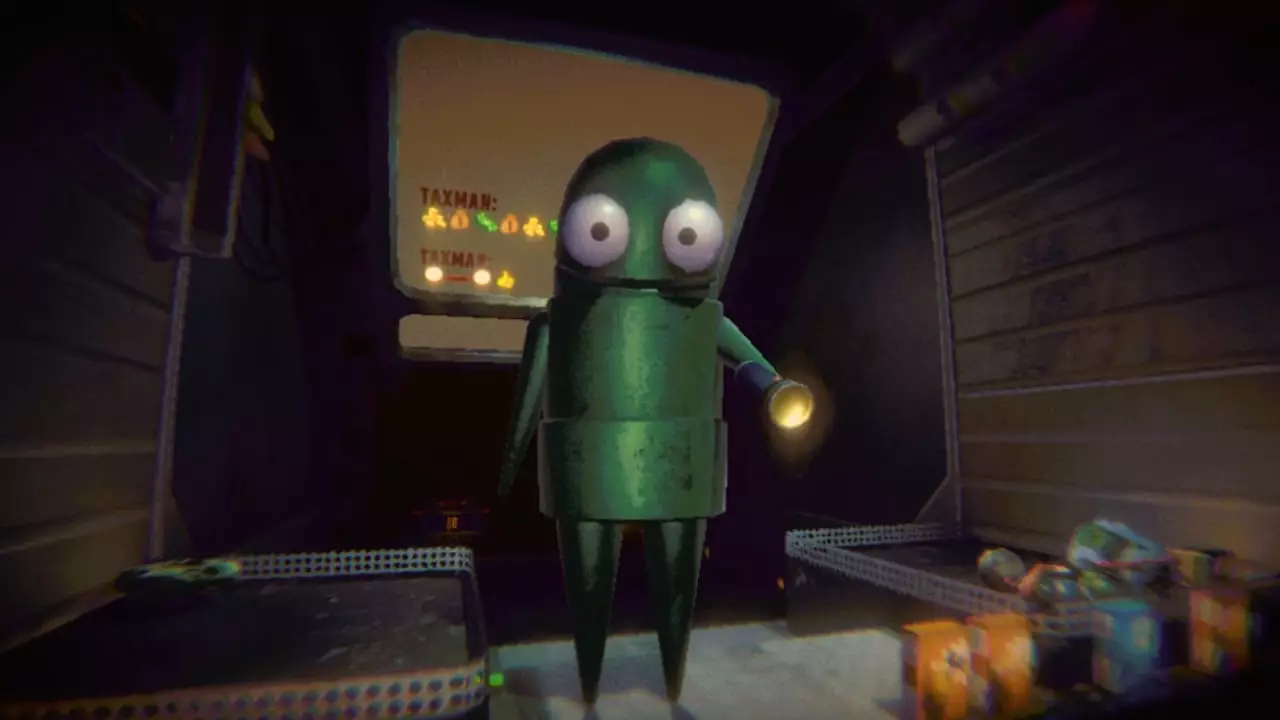In a vibrant gaming landscape, few genres ignite as much passion as horror. Particularly on PCs, avid gamers have become enamored with R.E.P.O., an innovative co-op game developed by the Swedish studio semiwork, which launched into early access in February 2025. The game resonates with players as it invites teams of up to six players to delve into a dark, mysterious past of humanity. With its seamless blend of tension and humor, R.E.P.O. has cultivated a dynamic gaming experience that fans rave about. The buzz surrounding it reached a fever pitch, leading to viral fame shortly after its release, but this success has unfortunately attracted the attention of bad actors looking to exploit its popularity.
Beware of Imitators: The Case of “REPO Horror”
For those browsing the Nintendo Switch eShop, a foreboding warning rings loud and clear: avoid a game called “REPO Horror.” This counterfeit not only borrows heavily from R.E.P.O. but deliberately deceives gamers into believing they are purchasing an official extension of that beloved title. Despite the façade—its logo mimicking the real deal and offering similarly dark atmospheric visuals—many users have reported that the gameplay experience is subpar and the production quality glaringly inferior.
Word spread through the Reddit community when a user unwittingly bought “REPO Horror,” convinced it was a legitimate sequel or spin-off. However, upon engaging with the game, they realized something was amiss: the experience felt distinctly disappointing, straying far from the authentic horror that characterizes R.E.P.O. This case exemplifies the risks gamers face in an ecosystem where the lines between legitimate and fake can easily blur; what starts as a misguided purchase can quickly devolve into frustration.
The Dark Side of Digital Distribution
With the rise of digital game distribution, we witness a double-edged sword. While it has democratized game development and allowed niche genres to flourish, it has also inadvertently paved the way for unscrupulous developers. The situation surrounding “REPO Horror” draws parallels to another disturbing incident seen earlier this year with the game “The Backrooms 1998,” which faced a similar fate upon its arrival on the Nintendo Switch. Developers like semiwork and others are often left grappling with the consequences of their popularity as such scammers undermine their hard work and intentions.
Reports about “REPO Horror” suggest that it has been published by a suspicious entity named BoggySoft. This organization seems to thrive on exploiting existing popular titles, as seen with their previous sketchy release, “Only Up!”—a blatant knockoff of another game that captured players’ imaginations called “OnlyUP!” While such practices have existed for years, their proliferation in the digital realm leaps alarmingly with the rise of indie game development, where creativity can be mimicked but never truly replicated.
Game Development Ethics: Protecting Creators
As gaming culture continues to evolve, it raises critical questions about ethical practices within the industry. The harmful impact of imitation games is profound—it not only impacts sales for original titles but also tarnishes the consumer experience. Players not only risk financial loss, but they also could end up missing out on experiences crafted from passion and creativity. This diabolical trend called into question our responsibility as consumers as well—are we doing enough due diligence before investing time and money into a game?
As of now, it appears that the community member who unearthed “REPO Horror” has taken the initiative by contacting Nintendo Support to report the issue. It’s heartening to note that the gaming community can catalyze action against such malfeasance. By standing together and voicing concerns over digital piracy and imitation, gamers can protect the brilliant minds behind original creations and contribute to a healthier environment for both developers and players alike.
The question remains: how do we ensure that we, as a community, are fostering innovation rather than allowing monetarily-driven imitators to erode the very foundation of creativity that fuels our love for gaming? The future of our digital playground depends on our vigilance against those seeking to capitalize on shortcuts rather than success through originality.

